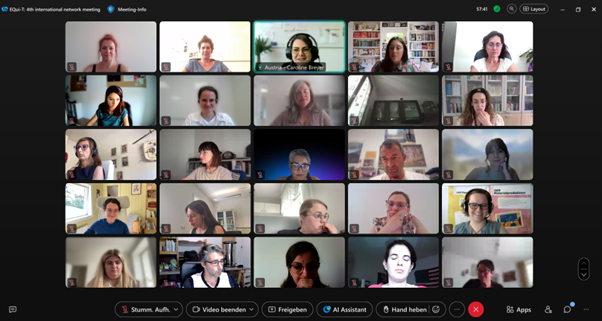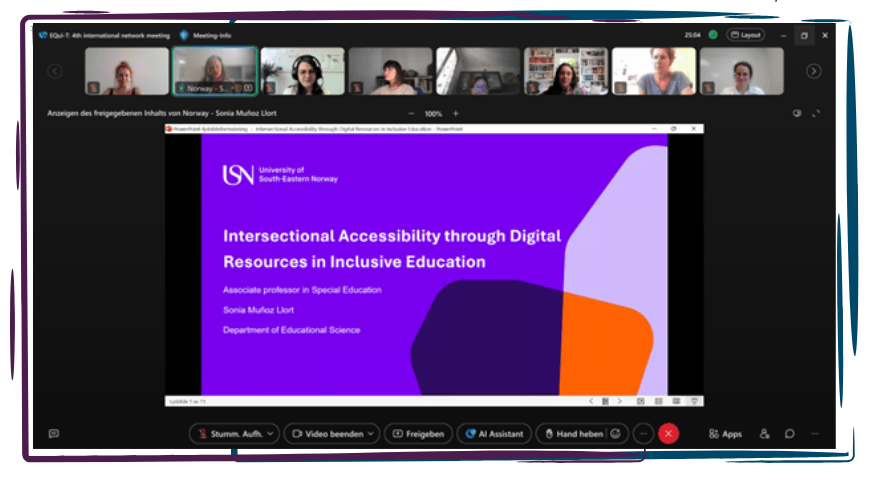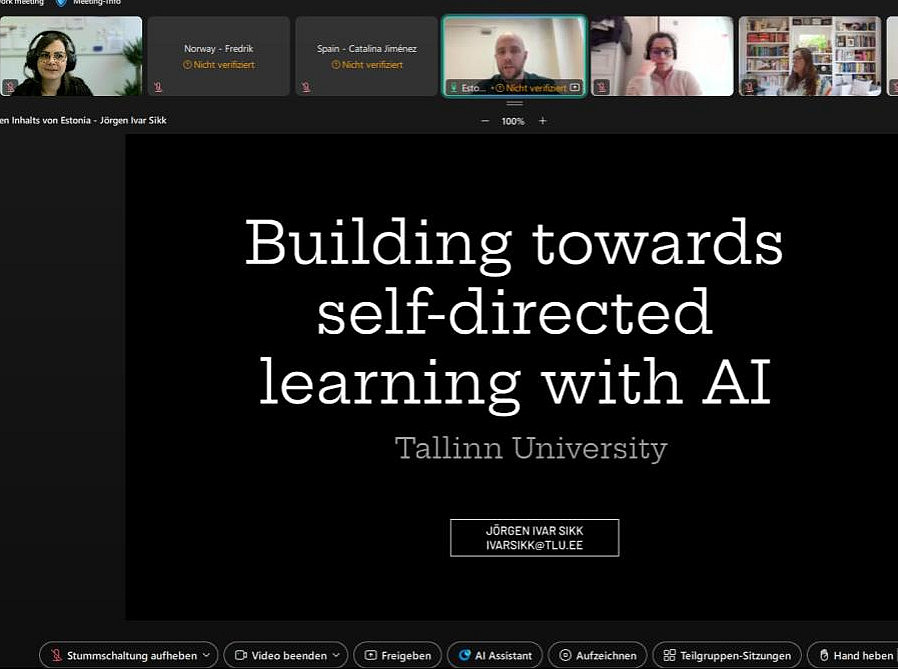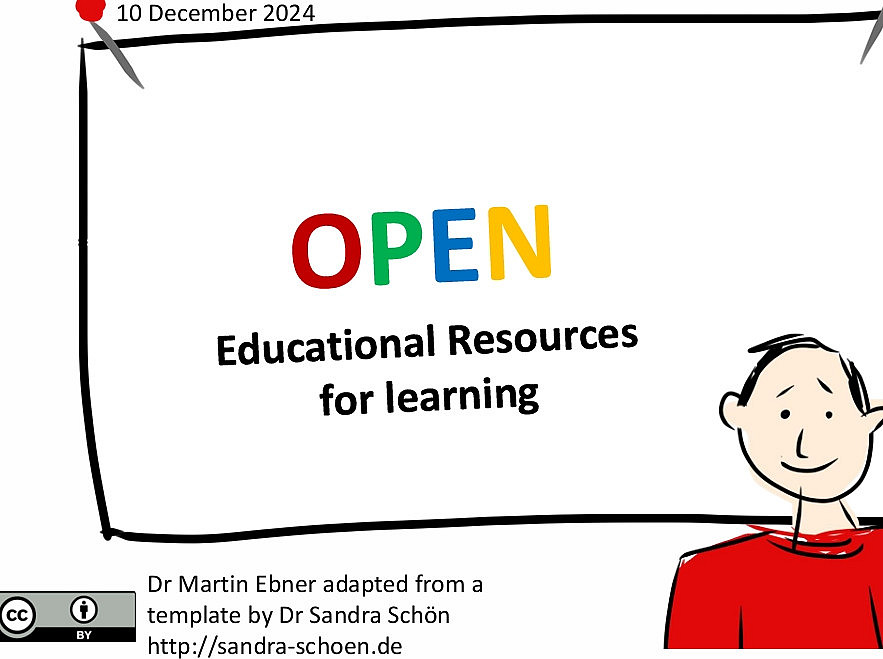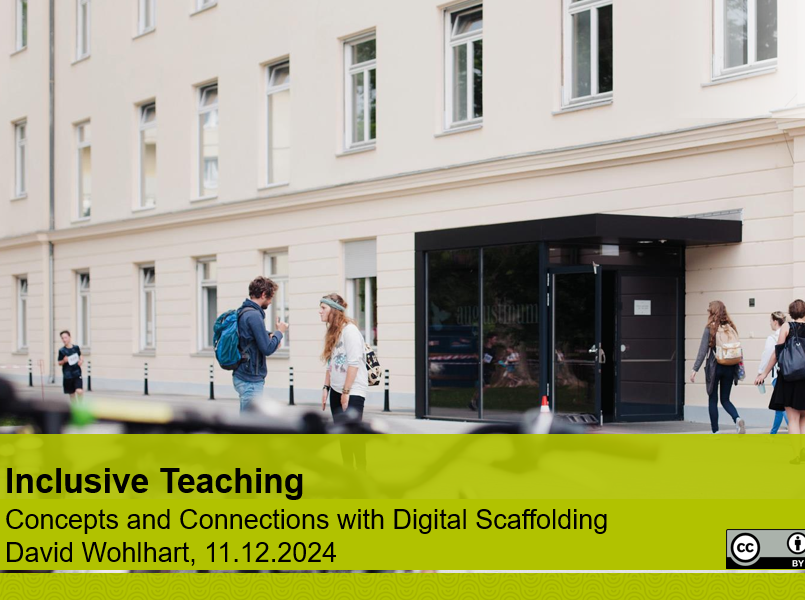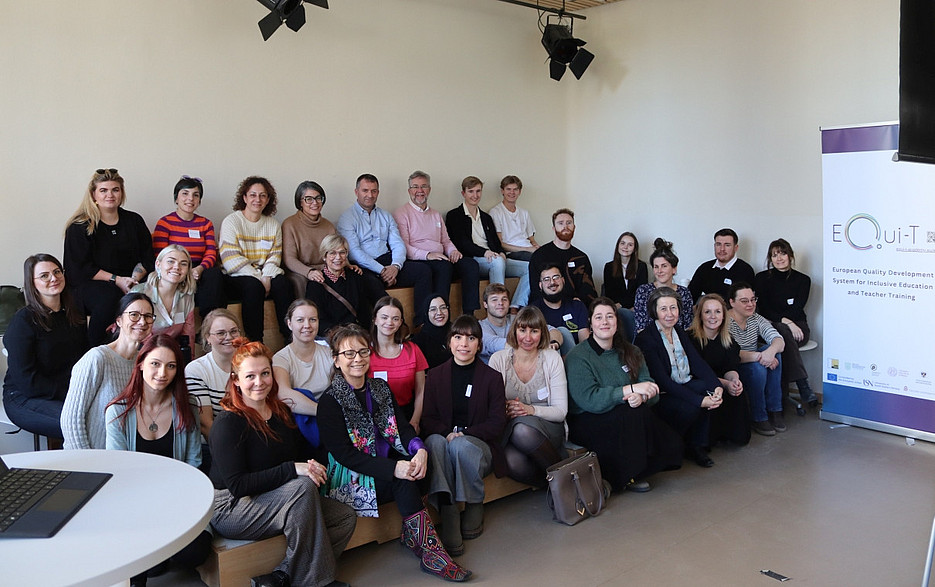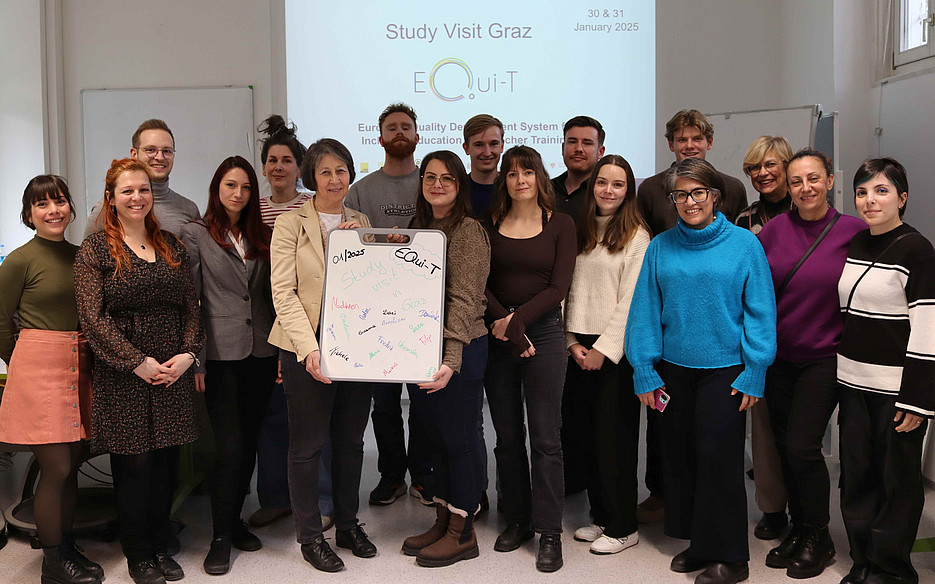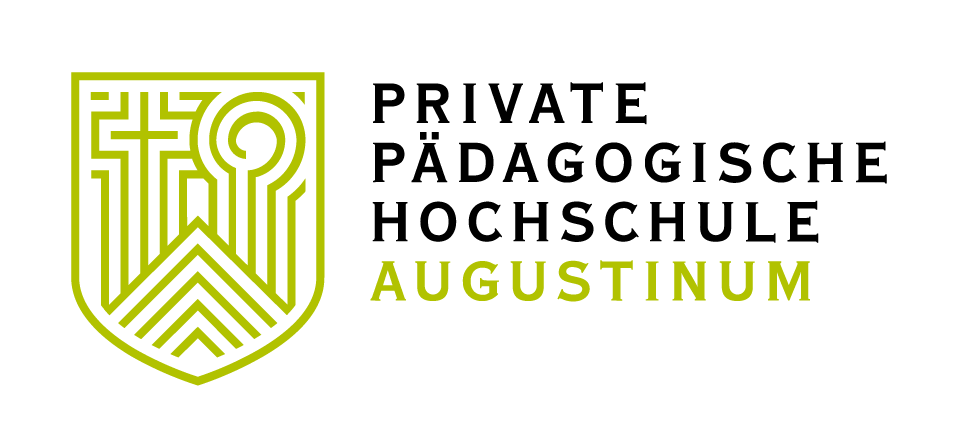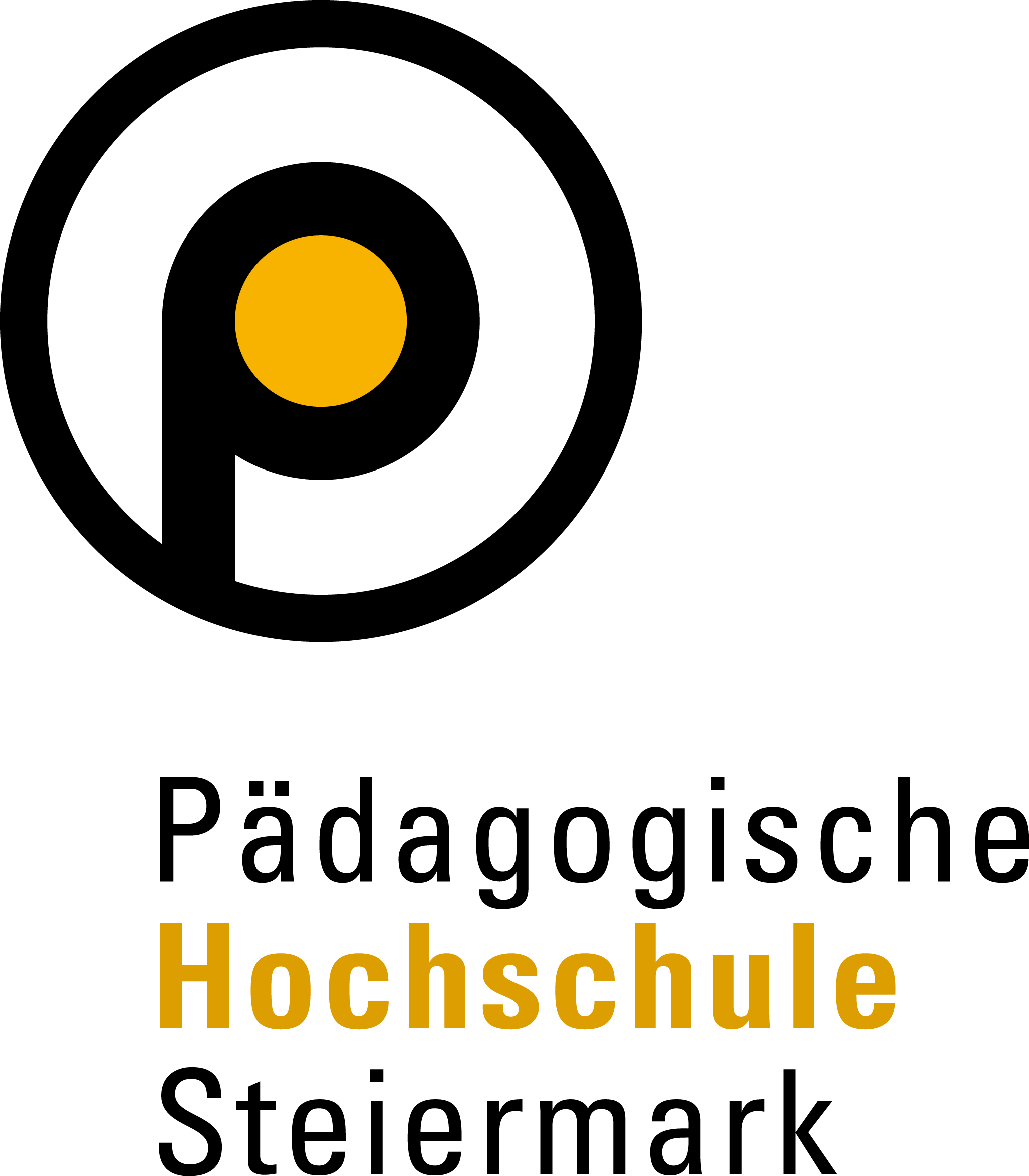EQui-T dissemination event
The international closing event for EQui-T will take place on 7 May 2026.
The invitation will follow in February 2026.
Information about the event and registration will be added on an ongoing basis.
National events will also take place around this date.
The national networking event in Austria will take place on 8 May 2026 in Graz.
The dates for the networks in Italy, Spain, Estonia and Norway will be announced as soon as possible.
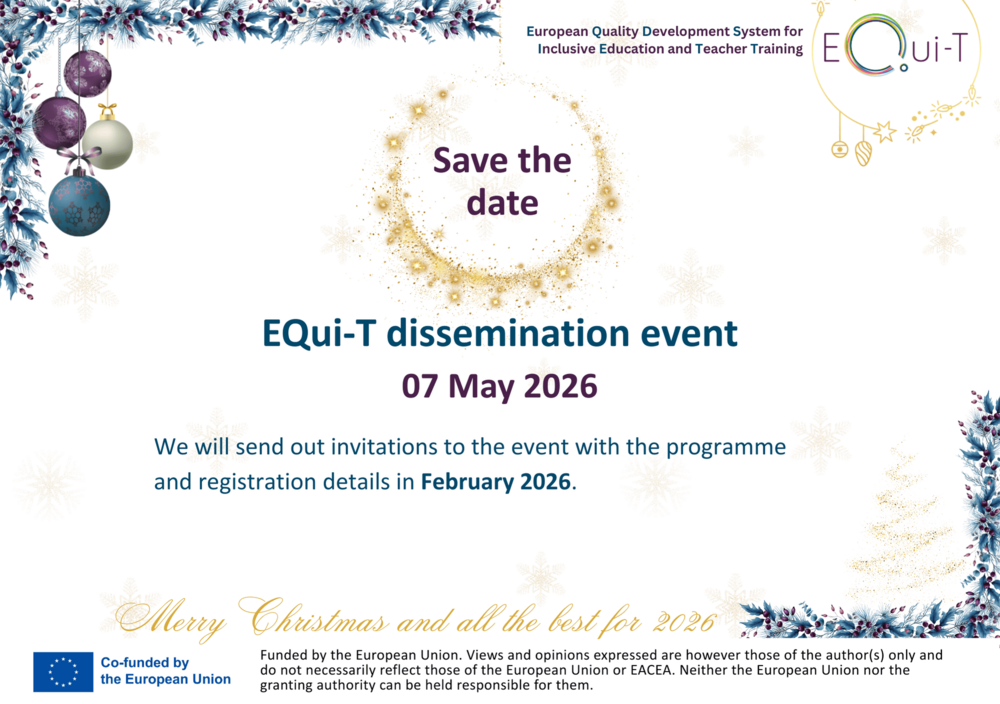
EQui-T Study Visit to Padua, Italy
On 5 and 6 February 2026, teachers and stakeholders from the fields of school, inclusion and open educational resources from the partner countries Austria, Italy, Norway, Spain and Estonia will once again meet for the 2nd EQui-T Study Visit in Padua, Italy.
The programme includes visits to local schools (primary and secondary level), exciting presentations and exchanges with colleagues on inclusive teaching practices and OER.
We look forward to stimulating discussions and many valuable takeaways for your own teaching practice.
Here you can find the highlights of the 1st EQui-T - Study Visit in Graz, Austria in January 2025 and here you can find the review.

Review of the 7th International EQui-T Network Meeting on 20 January 2026
The 7th international EQui-T network meeting focussed on inclusive education in Estonia.
Katariina Karu, teacher and special educator at the Tartu Herbert Masing School (Estonia), provided fascinating insights into the Estonian school system and the implementation of inclusive teaching in her keynote speech “Focus on Tartu Herbert Masing School”. The keynote addressed dealing with heterogeneity in the classroom as well as differentiation and support in everyday Estonian school life. Practical examples also offered plenty of inspiration for the participants' own practical work in inclusive classroom settings.
The keynote's content was further explored in breakout sessions, where conditions for success and challenges were discussed in relation to participants' own teaching practices. The international comparison opened up new perspectives on inclusive school and classroom development.
We would like to thank all participating teachers, scientists and education experts for the inspiring exchange and look forward to the next international online network meeting on 24 March 2026 from 16:00 - 17:30 (CET).
Registration: christina.hasenhuettl(at)er.phst.at
Review of the 6th international EQui-T network meeting on 18 November 2025
At the 6th international network meeting on 18 November 2025, the focus was on digital technologies for students with hearing and visual impairments.
In line with this topic, Prof. Ombretta Gaggi (University of Padua) provided a practice-oriented keynote speech on “Digital Solutions for Inclusive Classrooms”. Participants first engaged in an exercise using images to discuss the challenges of creating accessible descriptions. Building on these insights, the presentation shifted to to school practice, identifying potential barriers for children with hearing and visual impairments. Possible solutions for ensuring barrier-free access for all children were presented, such as digital tools and software, as well as tips for designing accessible documents.
In subsequent breakout sessions, participants explored how the digital support elements presented can also be integrated into their own teaching practice. They also shared ideas on what inclusive teaching with digital tools and programmes might look like.
We would like to thank all participants for the stimulating exchange and look forward to the upcoming international EQui-T network meeting on 20 January 2026 from 16:00-17:30 (CET) .
Registration: christina.hasenhuettl(at)er.phst.at
Review of the 5th international EQui-T network meeting on 24 September 2025
On 24 September 2025, the international EQui-T network met online for the fifth time. This time, the focus was on inclusion and equal opportunities with a special emphasis on children from socio-economically disadvantaged backgrounds.
There was a keynote speech by Monica Melby-Lervåg (University of Oslo) on the topic "Children from low socio-economic backgrounds and in poverty: What can schools do to promote inclusion and opportunities?". The discussions focused on interventions that are particularly effective in everyday school and classroom life to ensure equal educational opportunities for all pupils.
Following the keynote speech, the participants had the opportunity to discuss practical examples in breakout sessions and collaboratively develop strategies to further advance inclusive education.
We would like to thank all participants for their inspiring contributions and look forward to the next network meeting on 18 November 2025 from 16:00 - 17:30 (CET).
Registration: christina.hasenhuettl(at)er.phst.at
4th international EQui-T network meeting on 12 June 2025
On 12 June 2025, teachers, researchers and education experts came together online at the 4th EQui-T International Network Meeting to discuss access to inclusive learning through digital resources, with a focus on intersectionality.
In a keynote speech by Sonia Muñoz Llort (University of Southeast Norway) on "Intersectional Accessibility through Digital Resources in Inclusive Education", it was demonstrated how digital resources can help to make diversity visible in inclusive education and enable participatory, emancipatory learning from an intersectional perspective.
In subsequent breakout sessions, there were stimulating discussions on how to co-design inclusive learning environments, how students can be actively involved in digital education processes and how digital resources can be used in a way that reflects diversity in the classroom.
We would like to thank all participants for the inspiring contributions!
3rd international EQui-T network meeting
On 6 May 2025, the 3rd international network meeting of the EQui-T project took place, bringing together teachers, researchers and stakeholders from across Europe to discuss the use of artificial intelligence (AI) in the context of inclusive education
After a welcome by Prof. Caroline Breyer, PhD (PHSt), the meeting began with a national exchange on participants’ practical experiences. The discussion focused on AI tools already being used in the classroom, as well as their potential for enabling accessible and personalized education. Uncertainties and challenges in working with AI were also addressed.
A key highlight was the keynote by Jörgen Ivar Sikk, Junior Researcher at Tallinn University (Estonia). Under the title "Building towards self-directed learning with AI" he provided well-founded insights into current developments and used concrete examples to demonstrate how learning processes can be effectively supported by AI. The following hands-on session was particularly practical: participants had the opportunity to try out various AI-based tools themselves and explore their possible uses in teaching.
Later in the meeting, national networks discussed how the insights gained could be incorporated into their own educational practices—always with a focus on diversity, accessibility, and didactic quality. The concluding summary made it clear: engaging with AI in inclusive teaching is still at an early stage in many places. At the same time, there is a significant need for guidance, exchange, and practical solutions.
The next international network meeting will take place on June 12, 2025, from 16:00-17:30 CEST. If you would like to register, please send an email to Christina Hasenhüttl: christina.hasenhuettl(at)er.phst.at
We look forward to your participation!
On 26 February 2025, we welcomed participants from the fields of schools, inclusion and open educational resources (OER) to the second international online EQui-T network event.
Introductory words by Caroline Breyer (PHSt) were followed by an exciting keynote speech by Miguel Ángel Valero on ‘Best practices for Inclusive OER’.
Barbara Gasteiger-Klicpera (University of Graz), Catalina Jiménez Hurtado (University of Granada) and Carlos Navas-Vallejo (University of Granada) then presented the criteria catalogue for Open Educational Resources developed as part of EQui-T project (WP2).
The various dimensions of the criteria catalogue were then discussed in the national networks (Austria, Italy, Spain, Estonia and Norway). The results of the discussions, suggestions and feedback from the participants in the national networks were then briefly presented by the moderators in the international network.
We would like to thank Miguel Ángel Valero, the speakers from the University of Graz and the University of Granada as well as all participants for the inspiring impulses and the stimulating exchange in the national networks.
We look forward to seeing you again at the next network meeting and hope for equally interesting presentations and discussions on the topics of OER and inclusion.
The 3rd international network meeting will take place on 06.05.2025.
Please send your registration by e-mail to Christina Hasenhüttl: christina.hasenhuettl@er.phst.at
The first EQui-T international networking event took place on 11 December.
The networking event was attended by teachers and other stakeholders in the field of schools, inclusion and Open Educational Resources (OER) from our partner countries.
After a warm welcome by Caroline Breyer (PHSt) and a short introduction by the project lead Barbara Gasteiger-Klicpera (Uni Graz) there were two exciting keynote speeches by Martin Ebner (TU Graz) on 'Open Educational Resources for Learning' and David Wohlhart (Wohlhart Lernsoftware, formerly also PPH Augustinum) on ‘Inclusive teaching - Concepts and Connections with Digital Scaffolding’. Afterwards, the participants took the opportunity to exchange ideas in the national networks (Austria, Italy, Spain, Estonia and Norway).
We would like to thank the speakers for the inspiring presentations and all participants for the stimulating exchange.
We look forward to seeing you again in 2025, where we will continue with equally interesting keynotes and discussions on OER and inclusion.
We look forward to seeing you again in 2025 with equally interesting presentations and discussions on OER and inclusion.
The 2nd international network meeting will take place on 26 February 2025.
Please send your registration by email to Veronika Ruhry: v.ruhry(at)phst.at by 23 February 2025 at the latest.
Review of the 1st study visit to Graz, Austria
On 30 and 31 January 2025, (future) teachers and other stakeholders from the fields of school, inclusion and open educational resources visited Graz. During their study visit, the participants from Estonia, Italy, Norway, Austria and Spain visited two primary schools in Graz. They took part in lessons, observed inclusive teaching practices and talked to school leaders and (inclusion) teachers about ideas and their own practices.
On 30 January, the participants also explored the Digital Lab for Inclusion. In small groups, they familiarised themselves with various digital tools and assistive technologies (including AAC tools) and tried to work with them (e.g. drawing a picture with an eye-tracking tool). They learnt more about the possibilities of using digital tools in inclusive classrooms and shared their personal experiences with different (digital) tools they use in their respective countries, institutions and schools. In addition to some differences in their individual practices, but also the common practices of their respective countries, the participants were also able to find similarities.
On the evening of the first day, the participants also had the opportunity to find common ground away from the practical side of things and get to know each other better over dinner.
In the closing session on 31.01.2025, the participants shared their thoughts, impressions and highlights of the study visit and collected takeaways for their own pedagogical professionalisation. Despite all the differences that the participants recognised with regard to the educational resources in their respective countries, they also identified a number of common ideas and convictions on how inclusive education can succeed in different teaching situations.
In the words of two participants from Spain:
"It was a great experience that we made the most of and, above all, very enriching and useful. [...] The exchange of ideas and experiences with colleagues from the other universities involved in this project was also excellent." (Antonio García Guzmán, Spain)
"Thank you very much for such a fruitful visit, the organisation and the kindness that made two unforgettable and inclusive days in Graz possible." (Miguel Ángel Valero Duboy, Spain)






